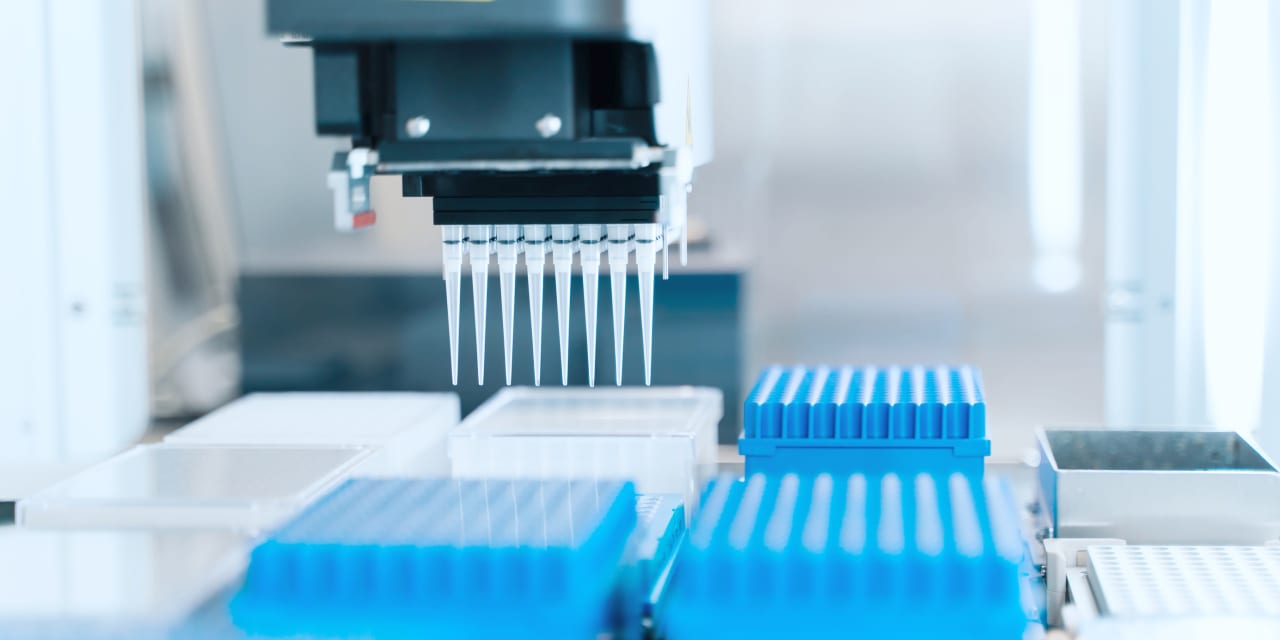Biotech stocks are climbing again, but it isn’t because the outlook for the sector has gotten any brighter.
Share prices have been dropping consistently since early February of 2021, when the air started coming out of the pandemic-era biotech bubble. The
SPDR S&P Biotech ETF
(ticker: XBI), which tracks the sector, is down nearly 60% since then, and has fallen almost 15% this year. The
S&P 500
is up about 17%.
The XBI has been climbing this month, however, and on Tuesday jumped 5.4% to close at $70.91.
From the first trading day in November through the close of the market on Tuesday, the XBI has slightly outperformed the S&P 500, climbing 8.8% while the S&P 500 has climbed 7.9%.
The biotech bump hasn’t been tied to any broader rally among healthcare stocks. The
Health Care Select Sector SPDR Fund
(XLV), which tracks the sector broadly, is up 2.9% this month, while the
VanEck Pharmaceutical ETF
(PPH), which tracks U.S. and global drugmakers, is up 2.4%.
Instead,
Mizuho
healthcare equity strategist Jared Holz told Barron’s, the gains are tied to a growing consensus that interest rates won’t climb any higher, and a broader rally among small-cap stocks. The
Russell 2000,
which tracks small-cap stocks, climbed 5.4% on Tuesday.
The Tuesday consumer price index report from the Bureau of Labor Statistics, which showed inflation is slowing in the U.S., served to bolster a growing consensus that the Federal Reserve won’t raise interest rates in December. The current high interest rates have been challenging for biotechs and growth stocks, both because they increase companies’ funding costs and because higher yields on investments such as Treasury debt reduce the current discounted value of future earnings.
Goldman Sachs analyst Asad Haider wrote in a note in early October that the XBI “has largely become an inverse rates proxy.”
A temporary reprieve from rate hikes won’t be a long-term salve for the XBI, however. As Haider wrote in his early October note, Goldman Sachs analysts expect “an uneven path for interest rates in the month ahead,” and that “the longer-term direction of travel could remain uneven and challenging.”
Holz told Barron’s on Wednesday that the XBI’s Tuesday jump has nothing to do with the fundamentals of the biotech sector itself.
In fact, much of the news from biotech companies over the past few weeks has been bad.
Sarepta Therapeutics
(SRPT) shares fell 40% on Oct. 31 after the company’s gene therapy for Duchenne muscular dystrophy, Elevidys, failed to demonstrate significant improvement over a placebo in the primary measure used in a confirmatory trial. Shares of
Verve Therapeutics
(VERV) fell 41% on Nov. 13 over safety worries in what the company presented as a successful early trial of its gene editing technology.
The setup leaves little hope for a broader, sustained biotech rebound. The early November bump hasn’t made much of a dent in the XBI’s 2023 losses, not to mention the slide it has sustained since early 2021.
Share prices of many of the XBI’s constituents have been decimated, including
Coherus BioSciences
(CHRS), down 77% this year, and
Vir Biotechnology
(VIR), a pandemic-era darling. That stock is down 61% this year, partly because a trial of an influenza prophylaxis it is developing failed over the summer.
Even so, trading on Wednesday started off strong for biotech stocks. The XBI was up 2% in morning trading.
Write to Josh Nathan-Kazis at [email protected]
Read the full article here





